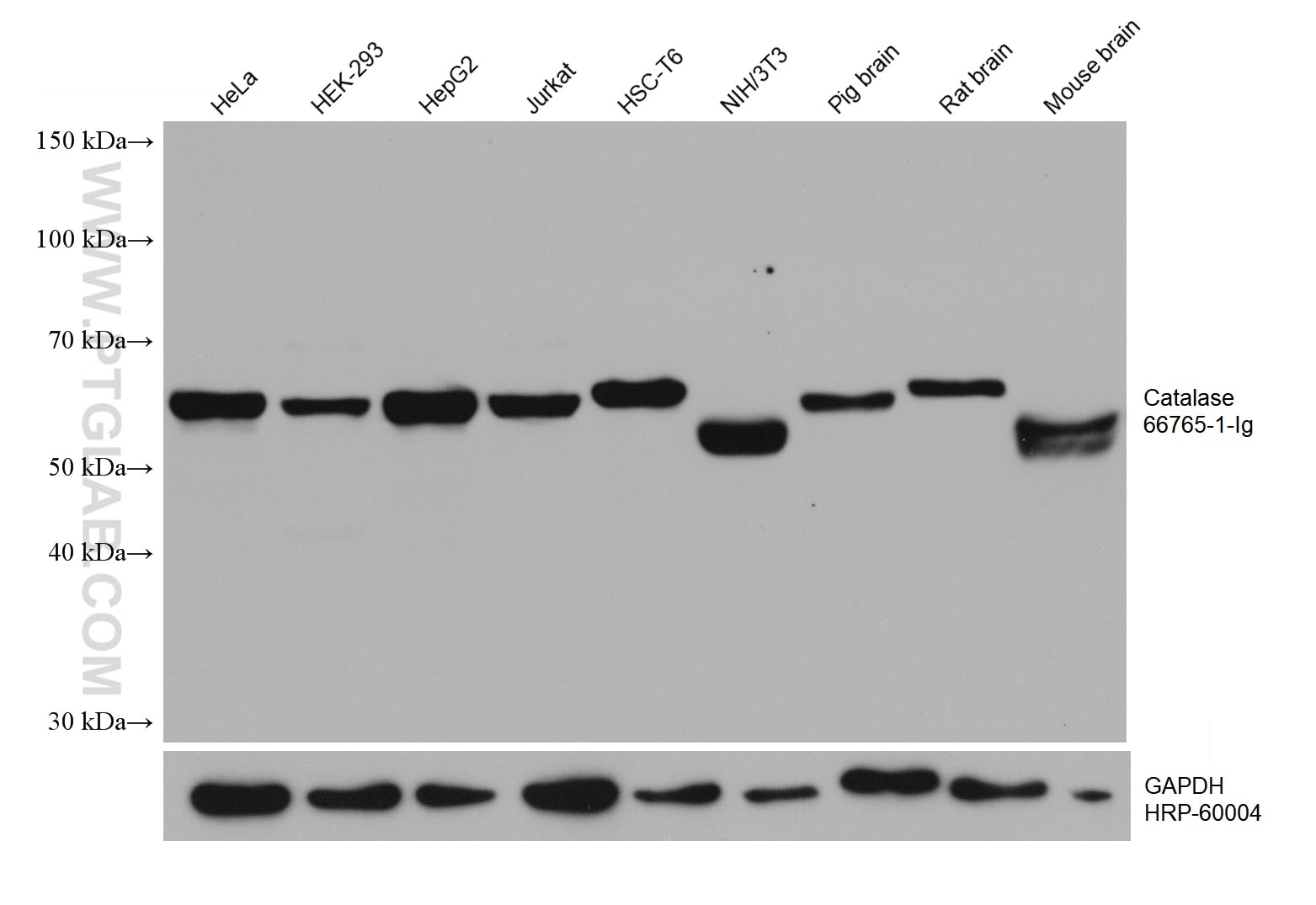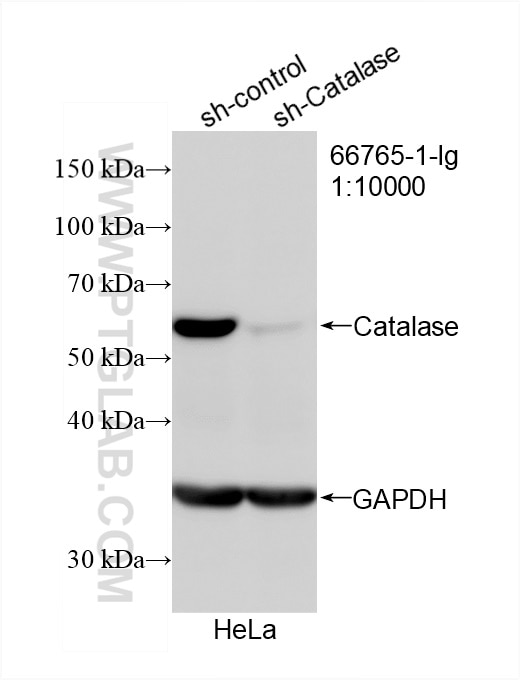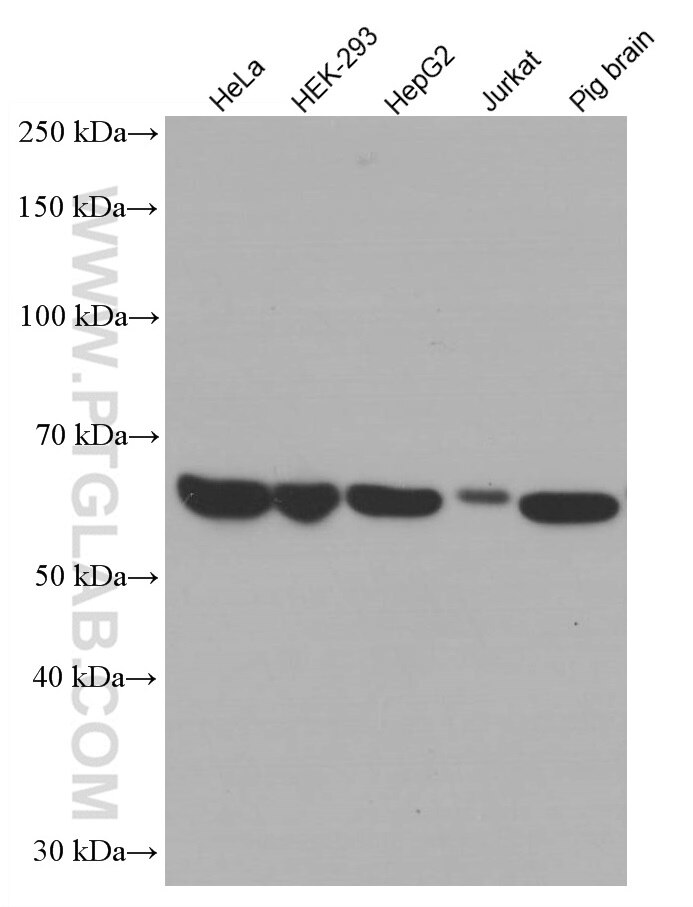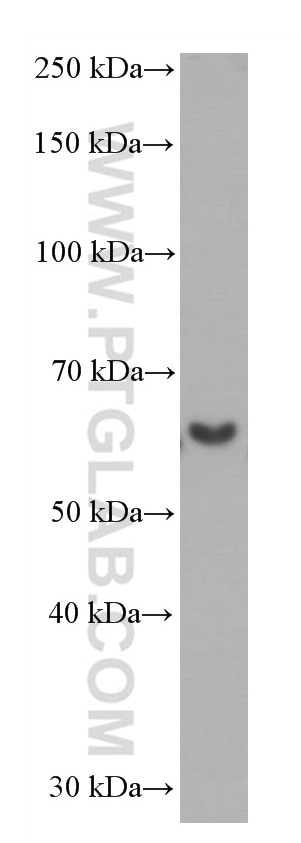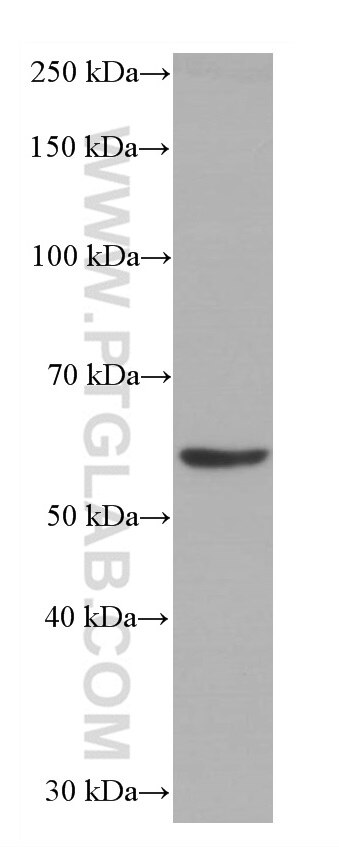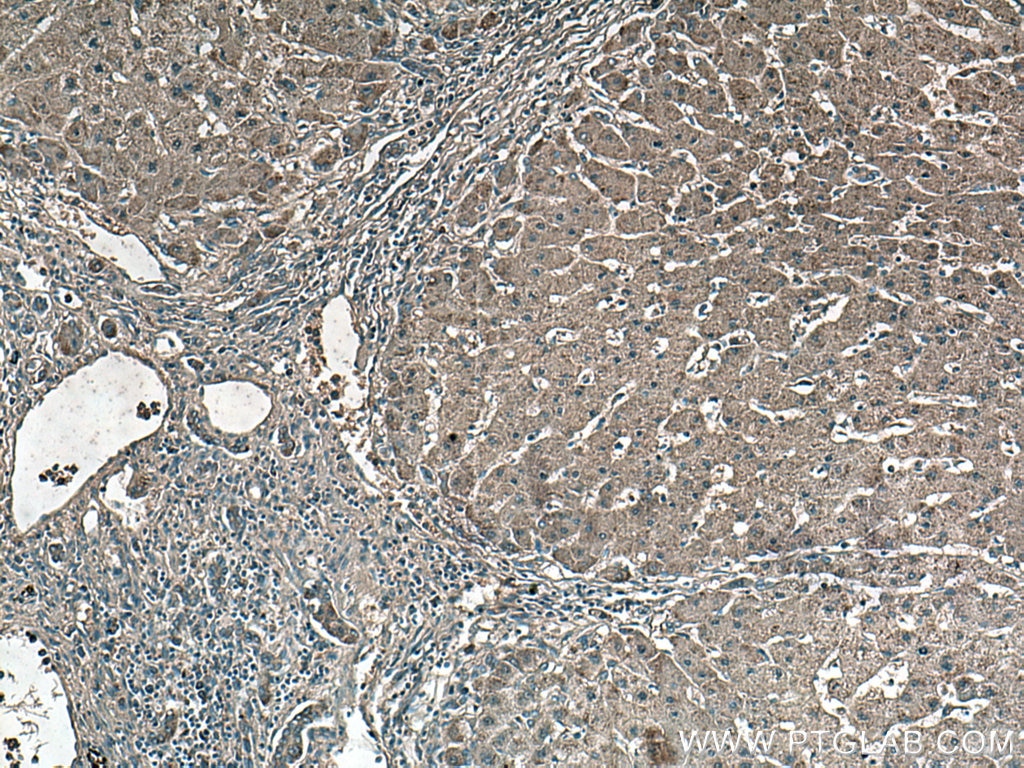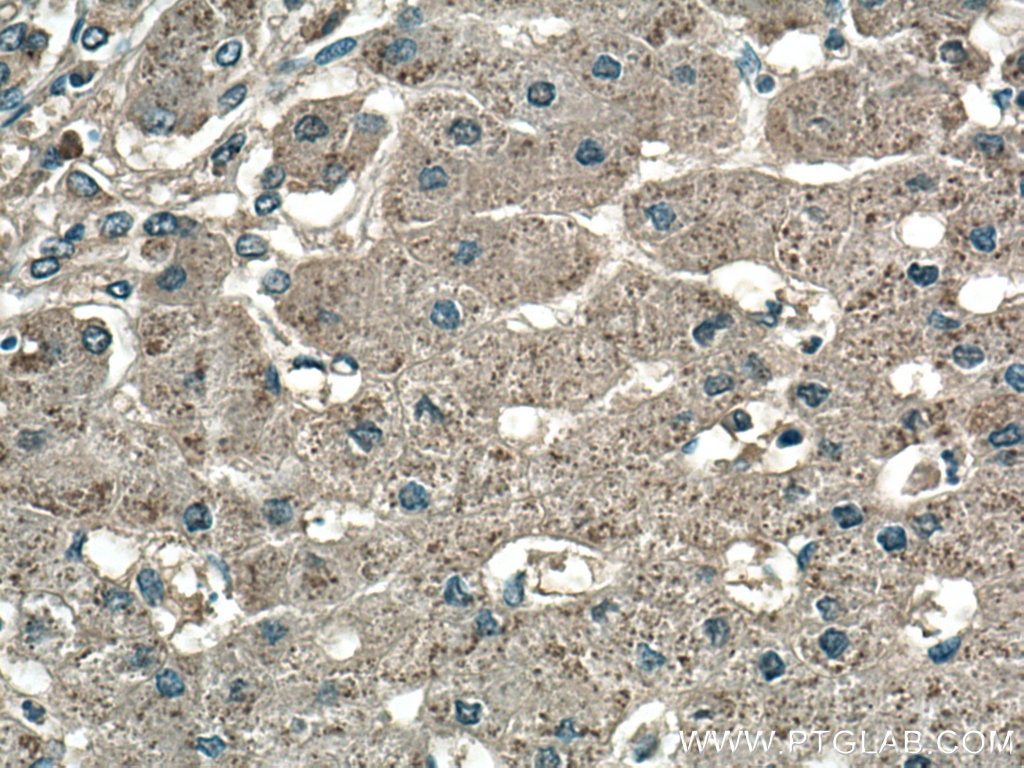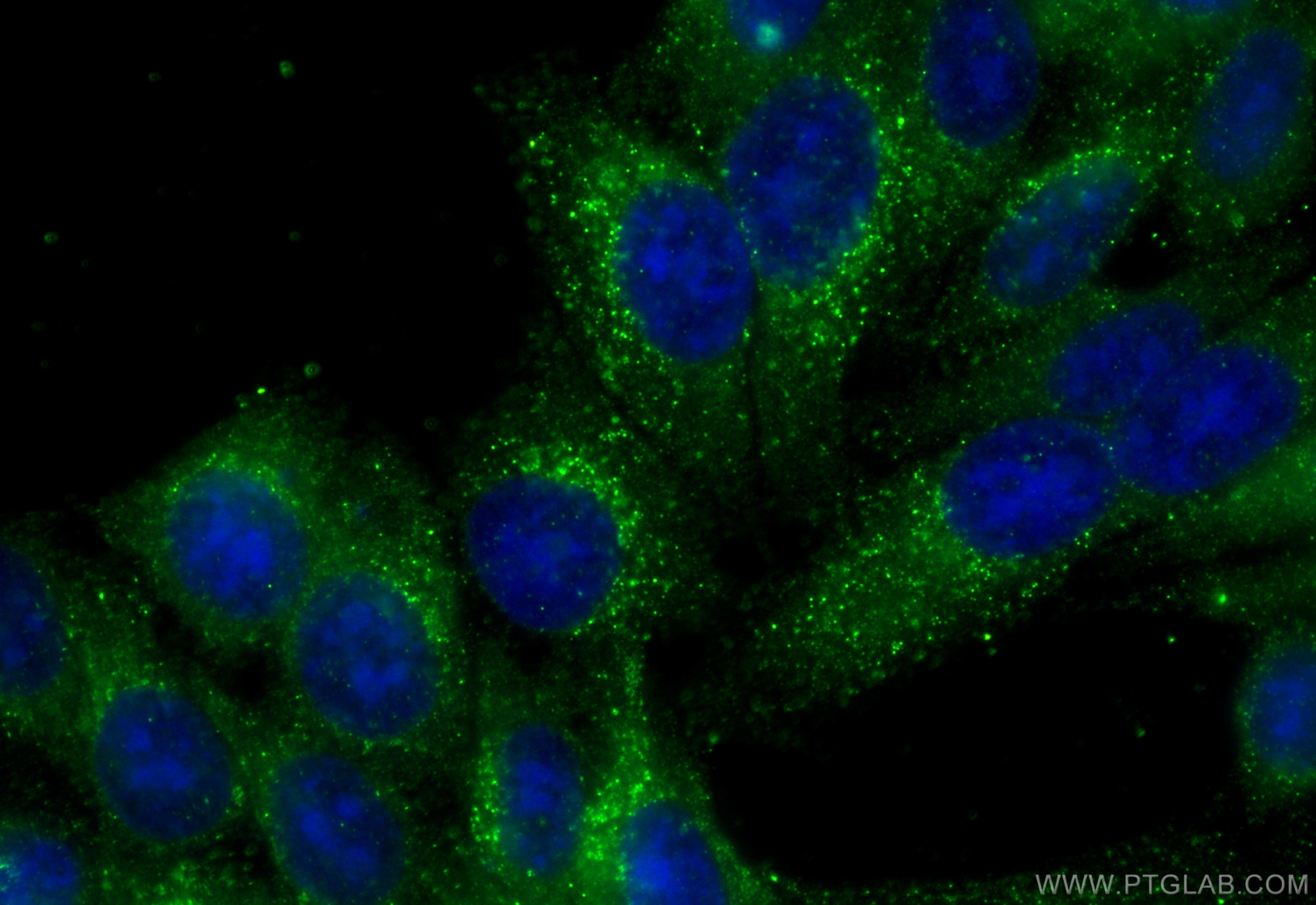Tested Applications
| Positive WB detected in | HeLa cells, rat brain tissue, mouse brain tissue, HEK-293 cells, HepG2 cells, Jurkat cells, HSC-T6 cells, NIH/3T3 cells, pig brain tissue |
| Positive IHC detected in | human hepatocirrhosis tissue Note: suggested antigen retrieval with TE buffer pH 9.0; (*) Alternatively, antigen retrieval may be performed with citrate buffer pH 6.0 |
| Positive IF/ICC detected in | HepG2 cells |
Recommended dilution
| Application | Dilution |
|---|---|
| Western Blot (WB) | WB : 1:5000-1:50000 |
| Immunohistochemistry (IHC) | IHC : 1:100-1:500 |
| Immunofluorescence (IF)/ICC | IF/ICC : 1:200-1:800 |
| It is recommended that this reagent should be titrated in each testing system to obtain optimal results. | |
| Sample-dependent, Check data in validation data gallery. | |
Published Applications
| WB | See 26 publications below |
| IHC | See 1 publications below |
| IF | See 6 publications below |
Product Information
66765-1-Ig targets Catalase in WB, IHC, IF/ICC, ELISA applications and shows reactivity with human, mouse, rat, pig samples.
| Tested Reactivity | human, mouse, rat, pig |
| Cited Reactivity | human, mouse, rat, pig, goat |
| Host / Isotype | Mouse / IgG1 |
| Class | Monoclonal |
| Type | Antibody |
| Immunogen |
CatNo: Ag16916 Product name: Recombinant human Catalase protein Source: e coli.-derived, PET28a Tag: 6*His Domain: 228-527 aa of BC112219 Sequence: EAVYCKFHYKTDQGIKNLSVEDAARLSQEDPDYGIRDLFNAIATGKYPSWTFYIQVMTFNQAETFPFNPFDLTKVWPHKDYPLIPVGKLVLNRNPVNYFAEVEQIAFDPSNMPPGIEASPDKMLQGRLFAYPDTHRHRLGPNYLHIPVNCPYRARVANYQRDGPMCMQDNQGGAPNYYPNSFGAPEQQPSALEHSIQYSGEVRRFNTANDDNVTQVRAFYVNVLNEEQRKRLCENIAGHLKDAQIFIQKKAVKNFTEVHPDYGSHIQALLDKYNAEKPKNAIHTFVQSGSHLAAREKANL Predict reactive species |
| Full Name | catalase |
| Calculated Molecular Weight | 60 kDa |
| Observed Molecular Weight | 60 kDa |
| GenBank Accession Number | BC112219 |
| Gene Symbol | Catalase |
| Gene ID (NCBI) | 847 |
| RRID | AB_2882111 |
| Conjugate | Unconjugated |
| Form | Liquid |
| Purification Method | Protein G purification |
| UNIPROT ID | P04040 |
| Storage Buffer | PBS with 0.02% sodium azide and 50% glycerol, pH 7.3. |
| Storage Conditions | Store at -20°C. Stable for one year after shipment. Aliquoting is unnecessary for -20oC storage. 20ul sizes contain 0.1% BSA. |
Background Information
Catalase belongs to the catalase family. CAT occurs in almost all aerobically respiring organisms and serves to protect cells from the toxic effects of hydrogen peroxide. CAT promotes the growth of cells including T-cells, B-cells, myeloid leukemia cells, melanoma cells, mastocytoma cells, and normal and transformed fibroblast cells. CAT catalyzes the reaction: 2 H2O2 = O2 + 2 H2O. Defects in CAT are the cause of acatalasia (ACATLAS) which is also known as acatalasemia.
Protocols
| Product Specific Protocols | |
|---|---|
| IF protocol for Catalase antibody 66765-1-Ig | Download protocol |
| IHC protocol for Catalase antibody 66765-1-Ig | Download protocol |
| WB protocol for Catalase antibody 66765-1-Ig | Download protocol |
| Standard Protocols | |
|---|---|
| Click here to view our Standard Protocols |
Publications
| Species | Application | Title |
|---|---|---|
Microbiome Antioxidant potential of Pediococcus pentosaceus strains from the sow milk bacterial collection in weaned piglets. | ||
Biomaterials MSC-derived exosomes protect against oxidative stress-induced skin injury via adaptive regulation of the NRF2 defense system. | ||
Oxid Med Cell Longev Cryptotanshinone Protects against PCOS-Induced Damage of Ovarian Tissue via Regulating Oxidative Stress, Mitochondrial Membrane Potential, Inflammation, and Apoptosis via Regulating Ferroptosis. | ||
Oxid Med Cell Longev Melatonin Protects Goat Spermatogonial Stem Cells against Oxidative Damage during Cryopreservation by Improving Antioxidant Capacity and Inhibiting Mitochondrial Apoptosis Pathway. |

